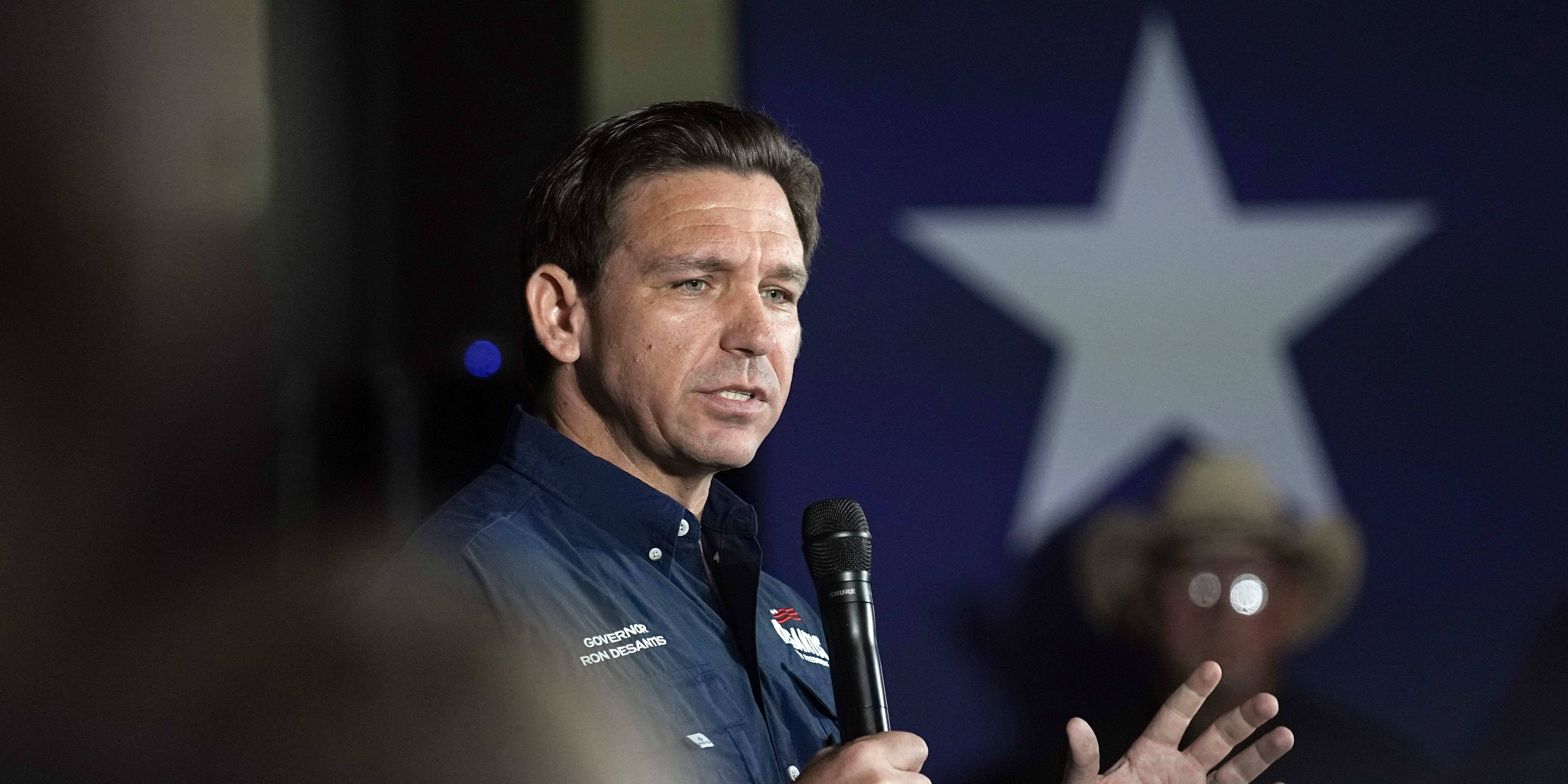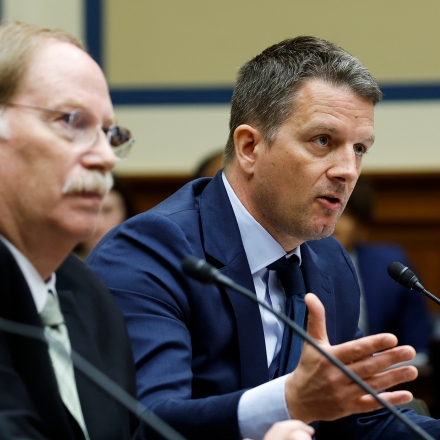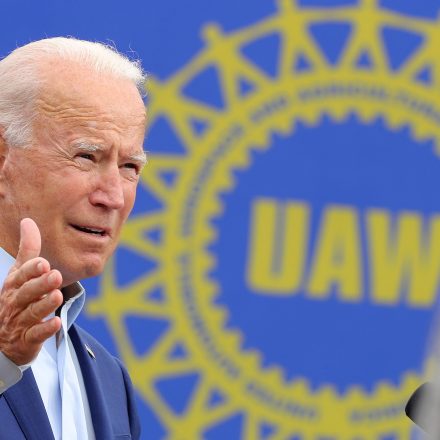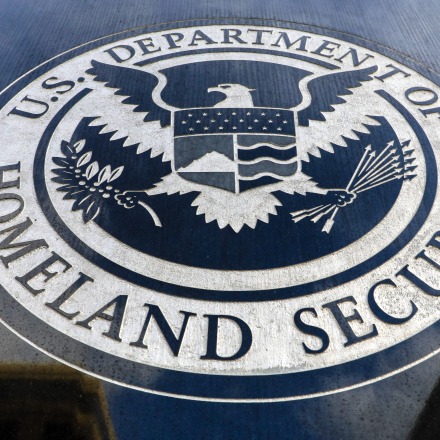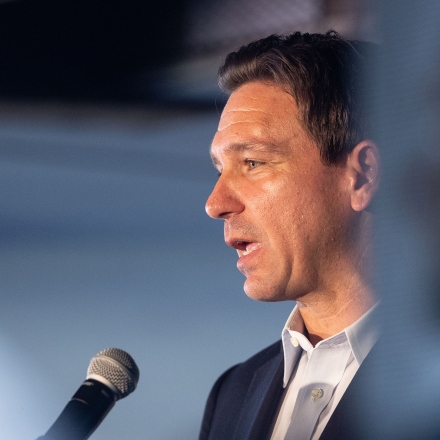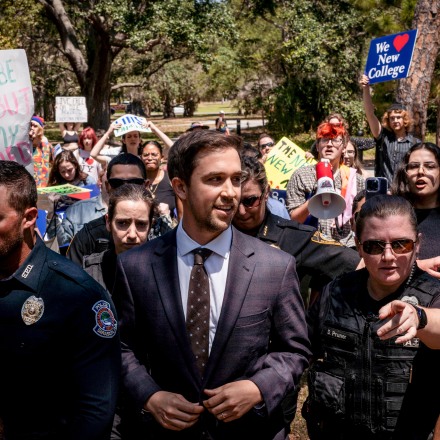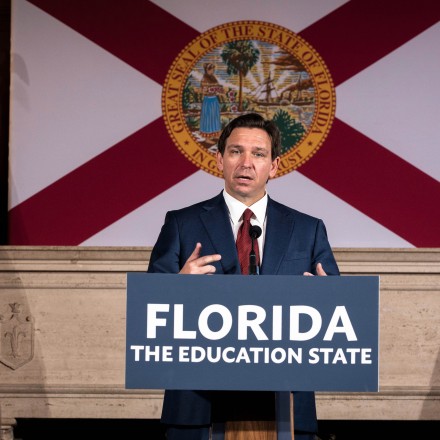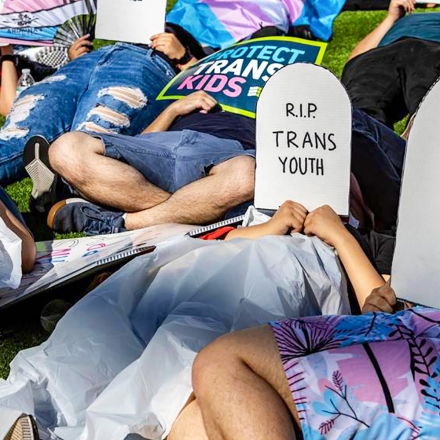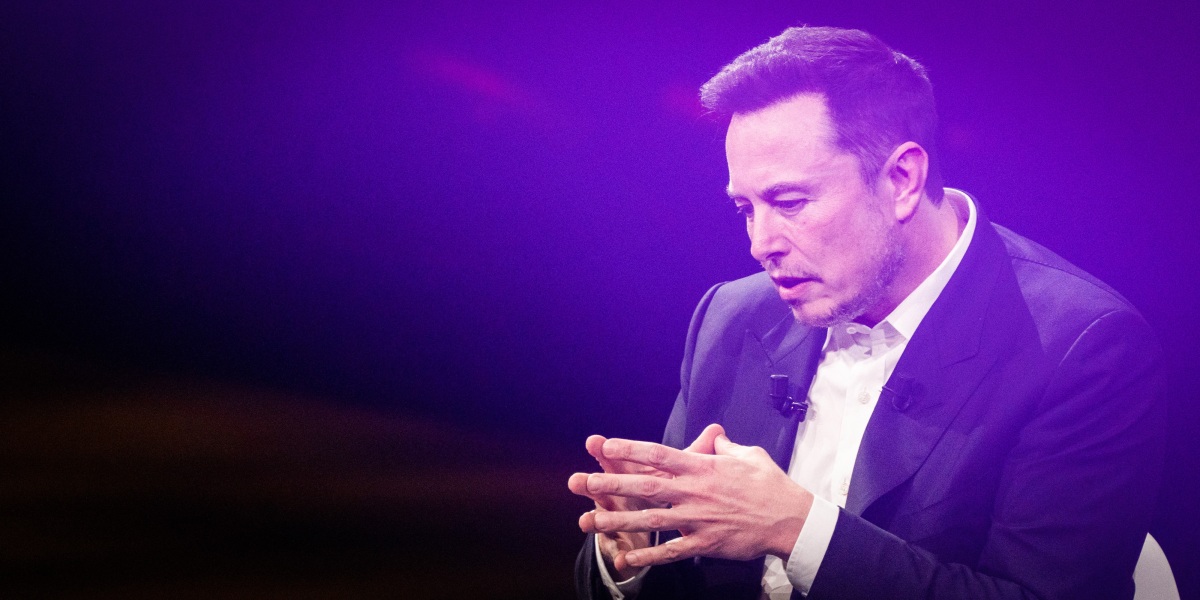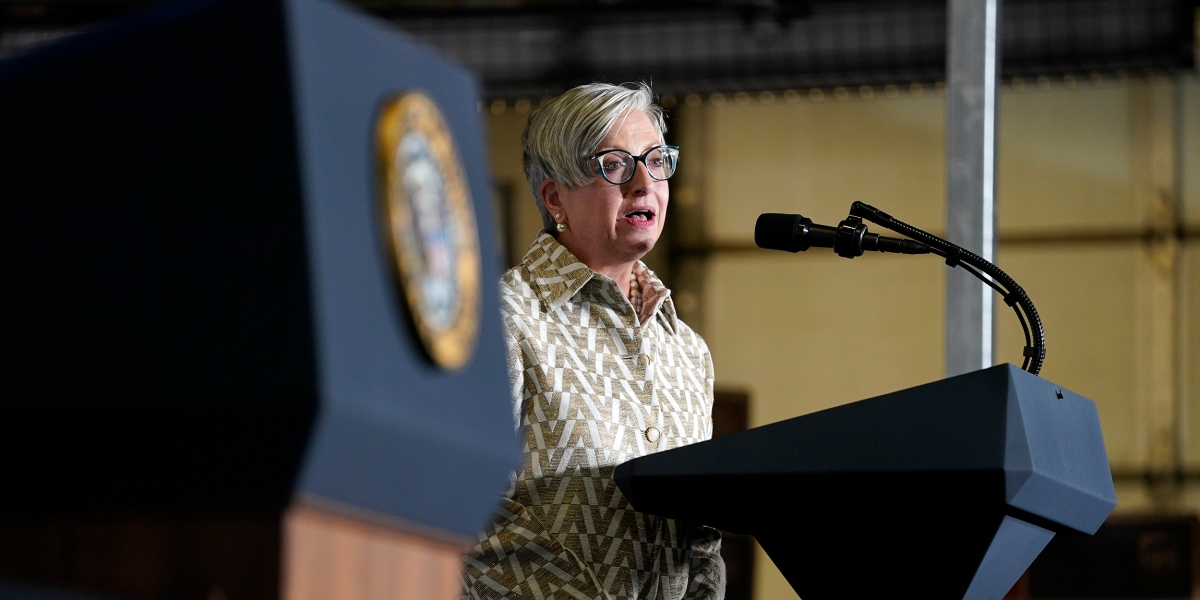Shortly after Florida Gov. Ron DeSantis took office in 2019, the state Supreme Court threatened to dissolve the Florida Bar Association if it didn’t get rid of its diversity programs.
The court had taken a sharp right turn after DeSantis selected three new justices with the help of Federalist Society board co-chair Leonard Leo. Leo led a secret panel of advisers that vetted DeSantis’s judicial nominees before he took office.
The revelation came on the heels of a slew of news stories on conservative donors buying influence on the U.S. Supreme Court — where Leo, again, was among the conservative legal activists who helped to install a conservative majority. The top federal court has since made landmark rulings against abortion rights and in favor of business interests. And Leo isn’t done yet: He funnels money to a network of right-wing organizations orchestrating key Supreme Court cases on red-meat conservative issues.
In Florida, Leo was working to overturn a 40-year status quo of judiciary balance and restraint. The state Supreme Court had fostered an image of independence after corruption scandals that forced two justices to resign in the early 1970s. When DeSantis took office, concerns about improprieties disappeared. The governor has a long history with the Federalist Society — he was a member at Harvard Law School — and his judicial nominees are backed by the group.
The ideological project DeSantis is pushing Florida is no secret. He unabashedly appoints political allies to posts across the state. Such picks have shown up in the judiciary, nonpartisan election offices, and state boards that oversee public schools and colleges, medical practices, business, and real estate.
DeSantis’s appointments, budget decisions, and fundraising tactics have come under heightened scrutiny since he announced a presidential run last month. None of the appointments, however, eclipse the lasting change of his state Supreme Court takeover. DeSantis has named five of the court’s seven members, all of whom are members of the Federalist Society.
“I don’t think he’s appointing chumps, but he’s clearly put a more ideological litmus test on his justices than others have,” said Neil Skene, who published an official history of the court. Vetting justices by patronage was common starting under President George Bush in the early 2000s, Skene said, but DeSantis is at the vanguard of making purely ideological appointments.
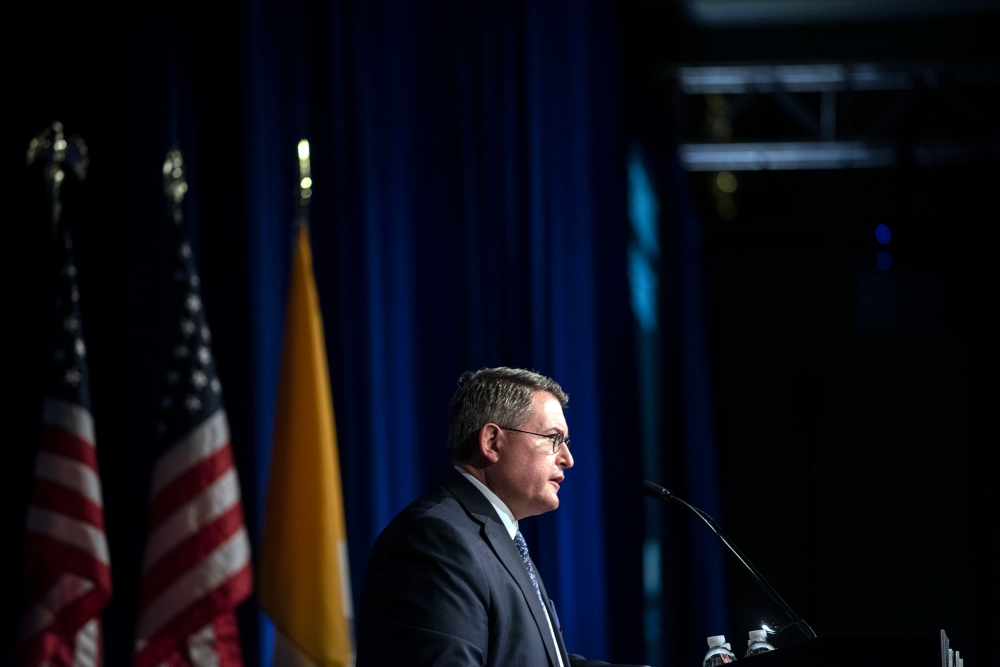
Photo: Michael Robinson Chavez/The Washington Post via Getty Images
He is not the first to award contracts to donors or administrative posts to political operatives, but DeSantis does it at an unprecedented scale. The thoroughness of his cronyism has had a chilling effect in Florida: There is a perception among politicians and residents alike that nothing can get done if you’re seen a DeSantis foe, said Barbara Petersen, executive director of the Florida Center for Government Accountability.
“I’ve never seen anything like this,” Petersen said. Public servants are dismayed at what’s happening to their state, she said: “People are afraid of him.”
No Diversity Policies
After the scandals in the 1970s, successive Florida governors sought to improve the diversity of viewpoints on the state Supreme Court.
“The idea behind all of that, of course, is to make sure that all of Florida is represented on its highest court,” said Craig Waters, who worked at the court for 35 years and was its communications director until he retired last year. “It makes sure that a state Supreme Court does not become an echo chamber, but a true debate society. If you have members of a state Supreme Court that are careful of each other and watching each other, it prevents anything happening that might lend itself to a lack of public trust and confidence. It’s very important that the justices police each other.”
That stopped under DeSantis.
“What I see today is a court that lacks diversity and that lacks that internal policing mechanism that has served it so well in the past.”
“What I see today,” Waters said, “is a court that lacks diversity and that lacks that internal policing mechanism that has served it so well in the past.”
Shortly after DeSantis made his first appointments, the court started chipping away at its diversity programs.
In 1949, the state Supreme Court founded the Florida Bar, an association that regulates attorneys. In the 1990s and early 2000s, the bar sought to diversify the judiciary along ideological, ethnic, and gender lines and to address judicial discrimination. The association convened a diversity symposium in 2004 and issued a report with recommendations to help improve diversity and strengthen its independence. In 2010, the Florida Bar created a committee to address diversity and inclusion.
When DeSantis’s allies arrived on the court, threats began coming down: The bar would be dissolved if it didn’t get rid of its diversity initiatives. Soon enough, the attacks proved effective. In 2021, the state Supreme Court ordered that the bar association amend its continuing legal education, or CLE, policy and eliminate a requirement for diversity among speakers and panelists in its continuing educational programs. The fight even made its way to the American Bar Association, which changed its own policies in April 2022 to bring the group into compliance with the rules imposed on the Florida Bar.
Florida Bar spokesperson Jennifer Krell Davis told The Intercept that the association had not changed its diversity programs, but that it adhered with the court’s order to eliminate diversity requirements in CLE programs. She declined to comment on a question about the court’s alleged threat to dissolve the association. “Our Leadership Academy, Path to Unity and Diversity grant programs (and others) continue to thrive under our Diversity and Inclusion committee,” Krell Davis said.
In February, the state Supreme Court went so far to dissolve the court system’s Standing Committee on Fairness and Diversity and eliminate its fairness and diversity training for judges.
The court’s public information Director Paul Flemming said the court’s opinion was self-explanatory. “The opinions of the Florida Supreme Court speak for themselves,” Flemming said. “I would refer you to what is written there: ‘Quotas based on characteristics like the ones in this policy are antithetical to basic American principles of nondiscrimination.’”
DeSantis Court Picks
How the state Supreme Court arrived here is the story of DeSantis’s picks. The court’s current chief justice, Carlos Muñiz, took an unusual path to the bench. He had previously been a Republican political operative and worked in the Trump administration as general counsel to former Education Secretary Betsy DeVos. Muñiz was deputy attorney general and chief of staff to former Attorney General Pam Bondi, deputy chief of staff and general counsel to the former Speaker of the Florida House of Representatives, and deputy general counsel to former Gov. Jeb Bush.
When DeSantis took office, Alan Lawson, a conservative and the most senior judge on the bench, was in line to be the next chief justice of the court. Court staff had been preparing for his ascension and budgeting for his administration when Lawson abruptly announced in April 2022 that he would retire. Lawson went to work as a partner at a new law firm in Tallahassee run by Republican political operatives who had broken off from one of the state’s top GOP law firms, Shutts & Bowen. Lawson told the Washington Post his decision to leave court was purely personal.
That July, less than four years after he was appointed to the state Supreme Court, Muñiz became its chief. Lawson was the first justice to be passed over for chief despite his seniority since 1976, said Skene, the expert on Florida courts. “He was not of the solidly Federalist Society group and Muñiz was,” he said. “Muñiz had a much more political job before that.”
Another DeSantis pick, Renatha Francis, worked at Shutts & Bowen before she was appointed to the court in 2020. Her original nomination was nullified because she hadn’t been a member of the bar for 10 years, as required by the state constitution. She was nominated again in 2022.
The web of allies and appointments DeSantis has woven across the state overlaps with and influences the court. In May, after another justice abruptly stepped down to take a job at a DeSantis-linked insurance company, the governor appointed Meredith Sasso to the state Supreme Court. Several months before, DeSantis had appointed her husband, Mike Sasso, to the board of the former Reedy Creek Improvement District, where the governor has been embroiled in a battle with Disney. DeSantis appointed Sasso and four other Republicans to the board in February, including a major GOP donor and a co-founder of the far-right group Moms for Liberty who is married to the chair of Florida’s GOP.
Four days after Meredith Sasso joined the bench, her husband resigned from the improvement district board. Had Sasso remained on, it would have raised questions about his wife’s ability to participate in court decisions related to Disney without presenting a conflict of interest.
Similar questions may soon face Charles Canady, another justice who was appointed by former Democratic Gov. Charlie Crist. Canady’s wife Jennifer was elected last year to the Florida state House and quickly co-sponsored a bill that would ban abortion beyond six weeks. DeSantis signed the six-week ban into law in April, but its implementation is pending an ongoing court challenge to the state’s current 15-week ban. Jennifer Canady has been floated as the state’s next speaker of the House with DeSantis’s blessing.
“That poses a really difficult kind of situation for Canady because basically every law that gets passed and might be up for court review will come through the House of Representatives,” Skene said. “It certainly creates this interesting proposition where husband and wife might be at the head of two different branches of government.”
Cronies Everywhere
What makes DeSantis different from his predecessors is that his actions are overtly political, said Ben Wilcox, research director and co-founder of Integrity Florida, a government watchdog. DeSantis has reshaped Florida politics far beyond the judiciary, from the boards of public schools to boards of medicine.
“Because DeSantis has such an aggressive agenda, that’s why you’re seeing all these appointments to school boards, universities,” Wilcox said. “He’s really trying to push his agenda in pretty much every chance he has.”
The governor, for instance, overhauled the board of trustees at the New College of Florida and installed conservative activists. One pick to the board was the architect of the war on critical race theory. The new board quickly fired the college president and replaced her with the former Republican speaker of the Florida House. He, in turn, tapped a GOP lawmaker — whom his office had previously suspended from a county position after he was charged with impersonating a law enforcement officer — to become the next president of South Florida State College.
“He’s really trying to push his agenda in pretty much every chance he has.”
The lawmaker, state Rep. Fred Hawkins, had no higher education experience, and the school lowered the education requirements for the position just three days before he submitted his application. Three finalist candidates withdrew their applications after the governor’s office contacted members of the board, the Herald Advocate reported. Hawkins got the job.
Hawkins would prove to be yet another loop in the tangle of DeSantis cronies. Before arriving at South Florida State, Hawkins sponsored a bill that gave DeSantis power to appoint the board for the Reedy Creek Improvement District, where Disney is based. The move came just under a year after DeSantis signed a bill to revoke Disney’s special tax status after the entertainment giant publicly opposed his “Don’t Say Gay” bill. Disney sued DeSantis in April, claiming the governor weaponized the state government to retaliate against it for making First Amendment-protected speech.
DeSantis also stacked the state’s two medical boards, including an appointment for a real estate broker whose wife DeSantis had installed in a real estate appraisal board. Both medical boards voted last year to ban gender-affirming health care for trans youth.
Lobbyists
DeSantis repeatedly leveraged his position to bully Florida political figures — from elected officials to lobbyists in the state — into supporting his ambitions and pet causes.
“What he is doing, and what is now being reported, is his shakedown of lobbyists,” said Petersen, of the Florida Center for Government Accountability.
DeSantis’s chief of staff organized government officials to solicit campaign contributions from lobbyists, NBC reported earlier this month.
“Shaking down legislators, you know: ‘Give me your endorsement, I haven’t signed the budget yet,’” Petersen said. “And damned if he did not retaliate against those people. You can see it in the vetoes. It’s stunning.”
“What he’s doing, he’s doing for the sole purpose of his political ambition — and to the detriment of Floridians. We’ve got real problems in Florida.”
The governor’s allies have also gone on to enrich themselves. In September 2020, shortly after former Florida Republican House Majority Leader Dane Eagle lost in the Republican congressional primary for a U.S. House seat, DeSantis gave him a new job. Eagle, a commercial real estate broker, was appointed as the executive director of the Florida Department of Economic Opportunity. In January, less than two and a half years into the job, Eagle announced that he would join the government affairs team at Ballard Partners, one of Florida’s biggest international lobbying firms, with extensive ties to Donald Trump.
“DeSantis continues to use his political position as Governor to feed the grift of his allies, by gifting them positions their unqualified for, allowing contracts to be diverted towards friendly vendors and pleasing donors with bills that he signs into law,” said Democratic state Rep. Anna Eskamani, who represents parts of Orlando, in a text message. “It’s unethical and feeds into people’s distrust of the Governor.”
With DeSantis’s budget for 2023 to 2024, critics saw a governor intent on funding his top causes at the expense of Floridians’ real concerns. DeSantis cut funding for projects to protect public lands and prevent flooding that were pushed by Democrats and Republican lawmakers who resisted his requests for endorsements in the presidential primary.
“It’s becoming more and more clear as all of this information is coming out that what he’s doing, he’s doing for the sole purpose of his political ambition — and to the detriment of Floridians,” said Petersen. “We’ve got real problems in Florida.”
